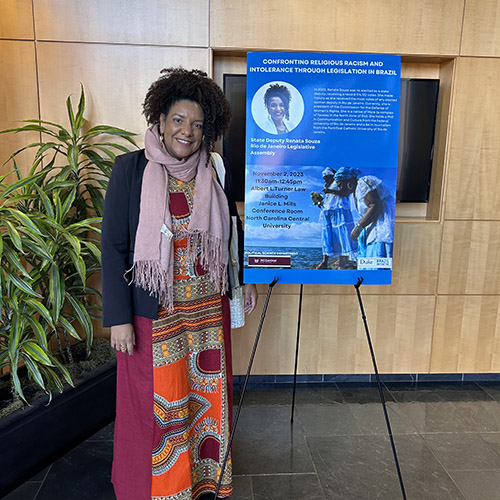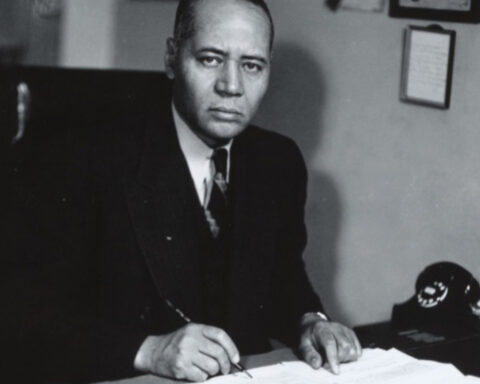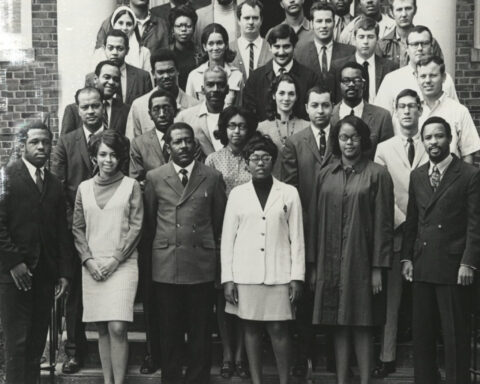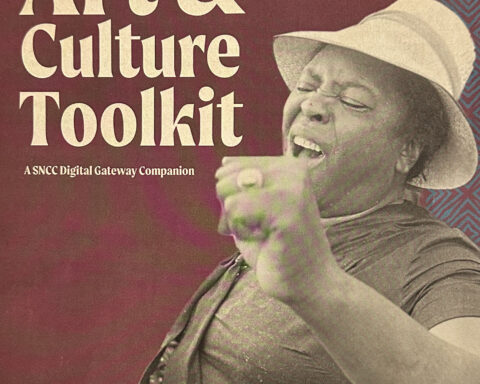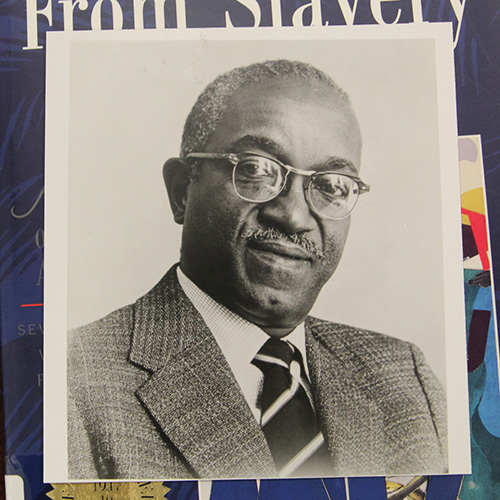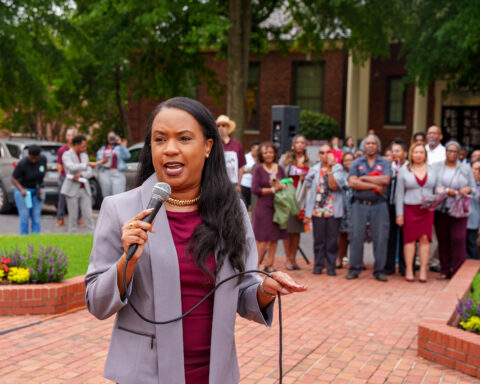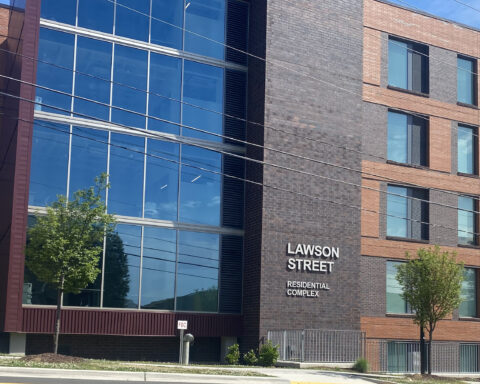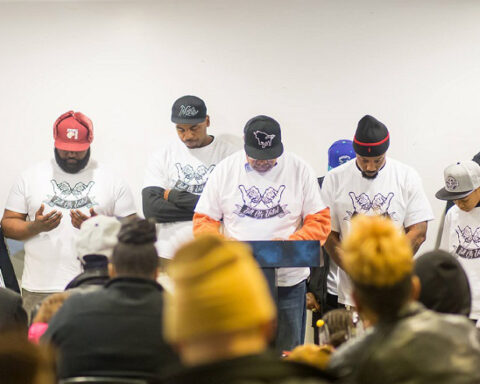According to Reneta Souza, Brazil shares something profound with the United States: a long and persistent history of racism.
Souza, a State Deputy for Rio de Janeiro, spoke to a group of around 25 students, faculty, and guests from Duke University and UNC Chapel Hill at an event held this past Thursday in the N.C. Carolina University School of Law. She has approximately 140,000 people within her jurisdiction.
Souza gave her presentation, “Race, Racism, and Racial Violence in Brazil,” in Portuguese using a translator. The event was organized by the Dan Blue Endowed Chair, Gladys Mitchell-Walthour.
“There is a domination of the thought that Black people are less human than white people,” said Souza. “Racism organizes Brazilian society.” Souza, a Black Brazilian woman, said an important goal of hers is to eradicate racist domination and policies that maintain it.
Brazil, similarly to the United States, has a long history of racism, having only abolished slavery around 130 years ago. Although Brazil did not have an apartheid structure like Jim Crow post-slavery, government-supported systemic racism persists, affecting 56 percent Black majority in Brazil.
Outside of the continent of Africa, Brazil is the nation with the largest Black population. From 1540 to the 1860s about 5.5 million enslaved Africans were taken to Brazil, which amounted to over half of all enslaved people brought to the New World during the slave trade.
Over a century later, Black Brazilians are still being oppressed by their government, despite being the majority.
As an anti-racist and advocate for Black progress in Brazil, Souza is extremely passionate about combating what she calls “religious racism,” or discrimination specifically directed against Black Brazilians who practice African-derived religions. However, such advocates often face ill-fated danger.
Souza discussed the cases of Mãe Bernadete and Marielle Franco. Bernadete, an anti-religious racism activist, was brutally assassinated with 12 gunshots to her back this past August. She had directed her activism to protecting the “quilombos,” Black communities inhabited by the descendants of escaped rebel slaves.
Franco, a politician, feminist, human rights activist, and a former close colleague to Souza, was also gunned down in 2018. She had served on the Municipal Chamber of Rio de Janeiro. Souza calls these increased threats “political femicide.”
Similarly, to the United States, misconceptions about the successful integration of racial groups are present. Many Brazilians talk about a “racial democracy,” the idea that Brazilian race relations have developed in a tolerant and conflict-free manner. Souza stressed that this idea is simply “a myth.”
Two key legislative measures have been taken in Brazil to make some strides towards racial justice. The Racial Equality Statute was passed in 2010 and in 2012, the Quota Law passed. May 25th is also now officially marked as Africa Day in Rio de Janeiro.
Souza say she plans to continue her advocacy to bring racial justice to Brazilian society through public policy.

